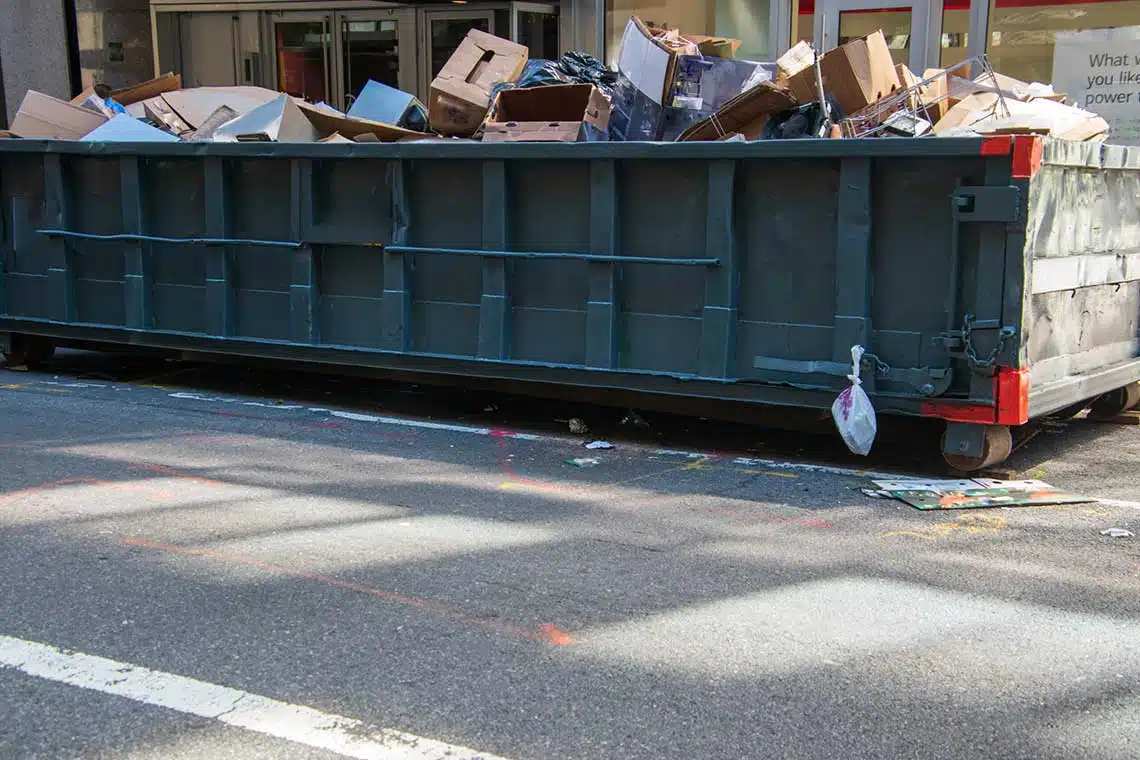
Welcome to Sweet Dumps, your trusted roll off dumpster rental company in Fort Worth, Texas. We understand that estimating the weight limits of dumpsters and determining the right size for your project can be intimidating. That’s why we’re here to guide you through the process. In this comprehensive guide, we’ll explain why dumpsters have weight limits, how the weight of a dumpster load is measured, weight limits by dumpster size, and provide tips on comparing limits and pricing. So let’s dive in and find out how much your roll off dumpster can hold!
Why Do Dumpsters Have Weight Limits?
Dumpsters are heavy-duty containers that can handle a significant amount of debris. However, the trucks that pick them up and transport them have limitations. Dumpster trucks can only safely lift and maneuver a certain amount of weight. To ensure safety and prevent damage to the trucks, dumpster rental companies set weight limits for their dumpsters.
Weight limits are also in place for cost reasons. Landfills and recycling facilities typically charge based on the weight of the materials being dropped off. Therefore, the weight of your debris affects the cost of disposal. Dumpster companies include a certain tonnage in each dumpster’s price, and if you exceed that weight, you may be charged an overage fee.
How Is the Weight of a Dumpster Load Measured?
When your roll off dumpster is ready to be picked up, our team at Sweet Dumps will arrive at your location and transport the dumpster to the nearest landfill or recycling facility. At the facility, the truck drives the dumpster onto a scale at the front. The total weight of the dumpster, truck, and debris is measured.
After weighing, the truck empties the dumpster, removing all the debris. As the truck leaves the landfill, it drives over another scale to get weighed again without the debris. The difference in weights is calculated to determine the weight of the debris, which is what you will be billed for. If the weight of your debris exceeds the weight limit set, you may incur an additional fee.
Weight Limits by Dumpster Size
Different roll off dumpster sizes come with different weight limits. It’s essential to select the right size based on your project’s needs to avoid exceeding the weight limit. Here are the weight limits for the most common roll off dumpster sizes:
10 Yard Dumpster
The average weight limit for a 10 cubic yard dumpster is typically 1-3 tons, or 2,000-6,000 pounds. This size is suitable for small to medium-sized projects, such as garage cleanouts or small remodeling jobs. Here’s an estimation of how much debris will fit inside a 10 yard dumpster:
| Type of Debris | Average Amount That Will Fit in 10 Yard Dumpster |
|---|---|
| Carpeting | 2,500-3,500 square feet |
| Concrete/Asphalt | 65-90 square feet of 10-inch thick concrete/asphalt |
| Drywall | 1,600-2,250 square feet of 1/2-inch to 5/8-inch thick drywall |
| Household Junk | 270-405 square feet of junk (clothes, furniture, trash, etc.) |
| Roofing | 1,600-2,400 square feet |
20 Yard Dumpster
The average weight limit for a 20 cubic yard dumpster is typically 2-4 tons, or 4,000-8,000 pounds. This size is suitable for medium-sized projects, such as basement cleanouts or small-scale construction. Here’s an estimation of how much debris will fit inside a 20 yard dumpster:
| Type of Debris | Average Amount That Will Fit in 10 Yard Dumpster |
|---|---|
| Carpeting | 3,000-4,200 square feet |
| Concrete/Asphalt | 80-110 square feet of 10-inch thick concrete/asphalt |
| Drywall | 1,950-2,650 square feet of 1/2-inch to 5/8-inch thick drywall |
| Household Junk | 335-475 square feet of junk (clothes, furniture, trash, etc.) |
| Roofing | 2,000-2,800 square feet |
30 Yard Dumpster
The average weight limit for a 30 cubic yard dumpster is typically 3-5 tons, or 6,000-10,000 pounds. This size is suitable for large-scale projects, such as major renovations or commercial cleanouts. Here’s an estimation of how much debris will fit inside a 30 yard dumpster:
| Type of Debris | Average Amount That Will Fit in 10 Yard Dumpster |
|---|---|
| Carpeting | 4,200-6,000 square feet |
| Concrete/Asphalt | 110-155 square feet of 10-inch thick concrete/asphalt |
| Drywall | 2,650-3,840 square feet of 1/2-inch to 5/8-inch thick drywall |
| Household Junk | 475-680 square feet of junk (clothes, furniture, trash, etc.) |
| Roofing | 2,800-4,000 square feet |
Remember, these are average estimations, and the actual weight capacity may vary depending on the specific density and type of debris you are disposing of.
Comparing Limits and Pricing
At Sweet Dumps, we understand that finding the right dumpster rental provider with the appropriate weight limits and pricing is crucial. We recommend trying to make the most accurate estimation for your project as you can to ensure that you’re able to have everything hauled off within the limits of both the dumpster and your budget.
Roll Off Dumpster Limits In Fort Worth
Thank you for choosing Sweet Dumps as your go-to roll off dumpster rental company in Fort Worth, Texas. We hope this guide has provided you with valuable insights into roll off dumpster weight limits and how to determine the right size for your project. Remember to consider the weight of your debris and choose a dumpster size that comfortably accommodates your needs. If you have any further questions or require assistance, please don’t hesitate to contact our friendly team at 817-531-4880. We are here to help you with all your roll off dumpster needs!
Note: The information provided in this article is intended for general informational purposes only. Weight limits and pricing may vary based on location, duration, and amount of combined material.
